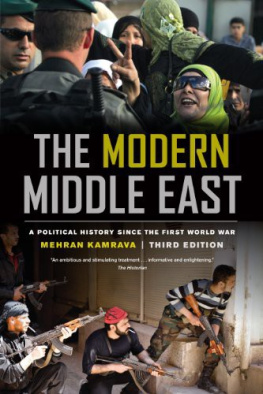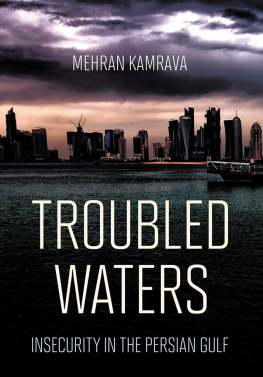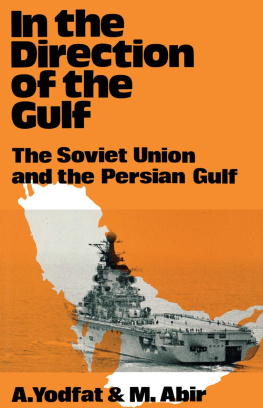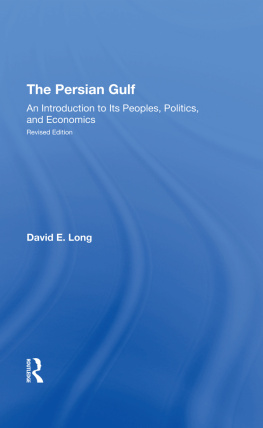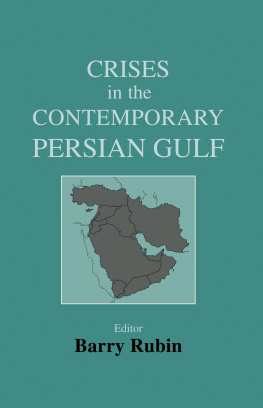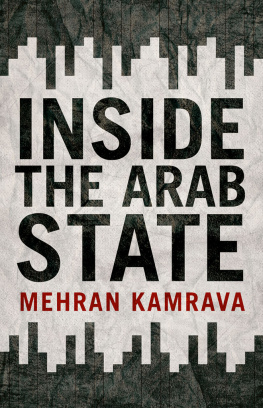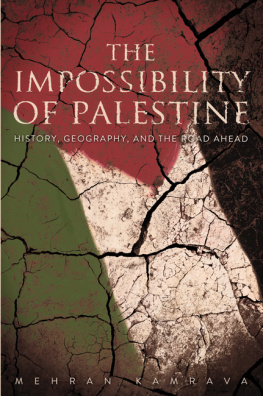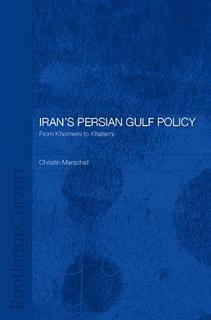
The Resource Curse in the Persian Gulf
The Resource Curse in the Persian Gulf systematically addresses the little studied notion of a resource curse in relation to the Persian Gulf by examining the historical causes and genesis of the phenomenon and its consequences in a variety of areas, including human development, infra-structural growth, clientelism, state-building and institutional evolution, and societal and gender relations.
The book explores how across the Arabian Peninsula, oil wealth began accruing to the state at a particular juncture in the state-building process, when traditional, largely informal patterns of shaikhly rule were relatively well established, but the formal institutional apparatuses of the state were not yet fully formed. The chapters show that oil wealth had a direct impact on subsequent developments in these two complementary areas. Contributors discuss how on one hand, the distribution of petrodollars enabled political elites to solidify existing patterns of rule through deepening clientelist practices and by establishing new, dependent clients; and how on the other, rent revenues gave state leaders the opportunity to establish and shape institutions in ways that solidified their political control.
The Resource Curse in the Persian Gulf will be of great interest to scholars of Middle Eastern studies, focusing on a variety of subject areas, including human development, human resources, clientelism, infrastructural growth, institutional evolution, state-building, and societal and gender relations. This book was originally published as a special issue of the Journal of Arabian Studies.
Mehran Kamrava is Professor and Director of the Center for International and Regional Studies (CIRS) at Georgetown University, Qatar. He is author of a number of books, including, most recently, A Concise History of Revolution (2020), Inside the Arab State (2018) and Troubled Waters: Insecurity in the Persian Gulf (2018).
The Resource Curse in the Persian Gulf
Edited by
Mehran Kamrava
First published 2020
by Routledge
2 Park Square, Milton Park, Abingdon, Oxon, OX14 4RN
and by Routledge
52 Vanderbilt Avenue, New York, NY 10017
Routledge is an imprint of the Taylor & Francis Group, an informa business
2020 Taylor & Francis
All rights reserved. No part of this book may be reprinted or reproduced or utilised in any form or by any electronic, mechanical, or other means, now known or hereafter invented, including photocopying and recording, or in any information storage or retrieval system, without permission in writing from the publishers.
Trademark notice: Product or corporate names may be trademarks or registered trademarks, and are used only for identification and explanation without intent to infringe.
British Library Cataloguing in Publication Data
A catalogue record for this book is available from the British Library
ISBN13: 978-0-367-40874-9
Typeset in Times
by Newgen Publishing UK
Publishers Note
The publisher accepts responsibility for any inconsistencies that may have arisen during the conversion of this book from journal articles to book chapters, namely the inclusion of journal terminology.
Disclaimer
Every effort has been made to contact copyright holders for their permission to reprint material in this book. The publishers would be grateful to hear from any copyright holder who is not here acknowledged and will undertake to rectify any errors or omissions in future editions of this book.
Contents
Mehran Kamrava
Desha Girod and Meir R. Walters
Matthew Gray
Jessie Moritz
Gail J. Buttorff, Nawra Al Lawati and Bozena C. Welborne
Mohammad Reza Farzanegan
The chapters in this book were originally published in the Journal of Arabian Studies, volume 8, supplement 1 (September 2018). When citing this material, please use the original page numbering for each article, as follows:
Chapter 1
Oil and Institutional Stasis in the Persian Gulf
Mehran Kamrava
Journal of Arabian Studies, volume 8, supplement 1 (September 2018) pp. 112
Chapter 2
Imperial Origins of the Oil Curse
Desha Girod and Meir R. Walters
Journal of Arabian Studies, volume 8, supplement 1 (September 2018) pp. 1328
Chapter 3
Rentierisms Siblings: On the Linkages between Rents, Neopatrimonialism, and Entrepreneurial State Capitalism in the Persian Gulf Monarchies
Matthew Gray
Journal of Arabian Studies, volume 8, supplement 1 (September 2018) pp. 2945
Chapter 4
Reformers and the Rentier State: Re-Evaluating the Co-Optation Mechanism in Rentier State Theory
Jessie Moritz
Journal of Arabian Studies, volume 8, supplement 1 (September 2018) pp. 4664
Chapter 5
Cursed No More? The Resource Curse, Gender, and Labor Nationalization Policies in the GCC
Gail J. Buttorff, Nawra Al Lawati and Bozena C. Welborne
Journal of Arabian Studies, volume 8, supplement 1 (September 2018) pp. 6586
Chapter 6
The Impact of Oil Rents on Military Spending in the GCC Region: Does Corruption Matter?
Mohammad Reza Farzanegan
Journal of Arabian Studies, volume 8, supplement 1 (September 2018) pp. 87109
For any permission-related enquiries please visit:
www.tandfonline.com/page/help/permissions
Gail J. Buttorff is Assistant Professor in the Department of Political Science at the University of Kansas, USA.
Mohammad Reza Farzanegan is Professor of the Economics of Middle East at the interdisciplinary Center for Near and Middle Eastern Studies (CNMS) at the Marburg Centre for Institutional Economics, Germany.
Desha Girod is Associate Professor and Director of the M.A. in Conflict Resolution in the Department of Government at Georgetown University, USA.
Matthew Gray is Associate Professor in the School of International Liberal Studies at Waseda University, Tokyo.
Mehran Kamrava is Professor and Director of the Center for International and Regional Studies (CIRS) at Georgetown University, Qatar.
Nawra Al Lawati is a post graduate research student at the University of Liverpool, UK.
Jessie Moritz is a lecturer at the Centre for Arab and Islamic Studies at the Australian National University, Australia.
Meir R. Walters is a Foreign Affairs Officer in the Bureau of Democracy, Human Rights, and Labors (DRL) Office of Near Eastern Affair at the U.S. Department of State, USA.
Bozena C. Welborne is Assistant Professor of Government at Smith College, USA.
Mehran Kamrava
Abstract: Oil has seriously impacted the institutional development of the state in the Arabian Peninsula. More specifically, the sudden and unprecedented acquisition of massive oil revenues resulted in the freezing of the states formal and informal institutions, at the point at which petrodollars were injected into the states coffers. From then on, state leaders were able to deploy the states wealth to dictate the pace and direction of institutional change. Over time, any institutional change has been directed towards enhancing regime security, and the pace of change has been calculated and deliberately slow. Any political opening has been dictated by the logic of state power maximization (in relation to society). At the same time, partly to ensure its popular legitimacy and partly through the vision of its leaders, the state has deployed its massive wealth both to foster rapid economic and infrastructural development, and to enhance the living standards of its citizens. In other words, whereas oil may have stunted institutional development i.e., an institutions curse it has been an economic blessing.




